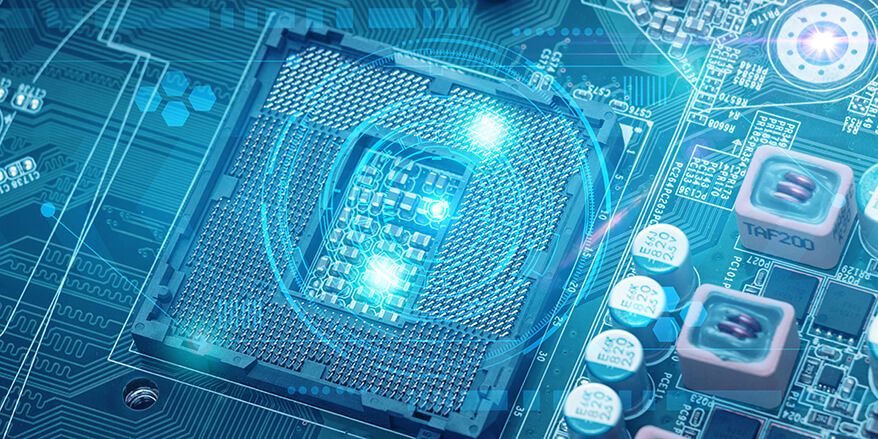Graphene LiPo Battery-What Its Differences From Lithium-Ion Battery
Sep 09, 2019 Pageview:2044
As we all know, there are scientists and researchers all over the world that are trying to make a breakthrough in the Battery industry. As a consumer, we only have a few requirements. We need a battery that can last long and doesn’t explore. As long as these aspects are being taken care of, we can use any battery.
And that’s the main reason the burden of making the consumers' safe, fall on manufacturers. So, very creatively and innovatively, they are testing new technologies and chemistries for the batteries. So, here, we are going to learn about one of those alternative technologies for batteries, i.e. lithium-polymer battery.
The Lithium-Poly battery is not a new technology. It has been in use for a long time now. The structure of the batteries is quite similar to Li-ion batteries. The main difference is the gel-like material in it which is made from Silicon or Graphene usually. That’s why; the batteries were given the name as “Graphene LiPo battery”. As these batteries are light in weight, they are commonly used in laptops, bar phones, etc. It is the weight and flexible characteristics of the battery which makes it ideal for laptops and high capacity power banks.
Graphene LiPo Battery Performance Introduction:
The material choice for improving Lithium battery technology has been going on for years now. And Graphene LiPo battery is one of the best alternatives. The structure of Graphene batteries is quite similar to traditional batteries. Just like them, there are two electrodes and an electrolyte solution to facilitate the ion-transfer. The main difference is only the composition of the electrodes.
The main change is in the Cathode, but some manufacturers also use carbon allotropes for the anode. The amount of graphene in the composite material differs as per the intended application of the battery. Another factor that creates a major difference in the amount of graphene used is the performance requirement.
There is no doubt that the performance of Lithium battery has improved since Graphene was added in the electrode. Graphene is a very versatile molecule that posses many desirable and unique properties. There are general limitations on the use of inorganic based electrode such as density, surface area, capacity, capacitance, conductivity, life cycle, etc. Due to the lack of “One size fits all” solution, there are many different ways to use graphene to enhance performance. It has already over the general limitations of other batteries as it provides increased battery life and performance without any compromise.
Various tests were done on the LiPo battery technology to ensure that it is safe for use. The performance standards of the LiPo battery includes:
· Temperature: The ambient temperature range for these batteries is in between 0 to 35°C with a relative humidity of 65±20% RH.
· Charge and Discharge: It will be ideal to charge the LiPo batteries with a constant voltage of 4-5 V. The discharge limit of voltage is 1 to 3 V.
· Short-Circuit: The battery can easily handle charge near to 100 milliohms. If the amount of charge goes above this limit, then there is a risk of short-circuiting.
· Thermal Shock: Once the battery is charged, you can place it in an extremely high-temperature zone until the temperature reaches 130°C.
· Free Drop: Unless you drop the battery from a 15 story building, we think you are safe. The residual capacity of the battery stays unaffected by the drop.
As you can see from the above tests, the Graphene LiPo battery shows immense power that it might be the next best option after Li-Ion batteries. Hopefully, someday it will surpass the parent technology and have a bigger market.
Graphene LiPo Battery Appear, Results Questionable:
Since the Graphene LiPo technology was adopted by the manufacturers, many countries have opted out for this. At present, there are even 1 billion Euros invested in Graphene battery technology research. As our future depends on the research like this, it is important that we look for some sustainable and bio-compatible materials to rely on the energy source. So, by far, the future results of Graphene LiPo battery seem pretty bright.
Differences Between Graphene LiPo Battery And lithium-ion battery:
All the inventions made by humans have both upside and downside. And just like all the others, Graphene LiPo battery and Lithium-ion battery both have differences that make them useful for certain applications. The main differences between both these types are given as follow:
· Energy Density: Even though LiPo battery shows potential in the energy density field, still these batteries don’t have as high energy density as of Lithium-ion battery.
· Conversion Rate: When it comes to conversion rate, Lithium-ion batteries have a conversion rate of 85-95% which is pretty high. The ideal LiPo battery has only achieved a 75-85% conversion rate.
· Charging Duration: In this field, the LiPo batteries have the advantage as they charge fast. The Lithium-ion batteries take longer to charge completely.
· Aging: This is another major difference in both these types; the Lithium-ion battery loses the charging capacity over time. But LiPo battery can retain it better than Lithium-ion.
· Safety: Lithium-ion battery, as everyone knows, is highly volatile. LiPo battery technology is much safer and there is less chance of explosion due to minor damage.
· Cost: Yes, the main reason Li-Ion battery still has a major market is because they are cheaper. But LiPo battery is slightly expensive, 30% to be exact which can be a lot for a middle-class consumer.
Both these battery technologies are partially capable of satisfying the needs of consumers. That’s why; the researchers are trying to find out better options. Everyone has the same question wondering if there is a perfect solution or not? As the technology of Graphene LiPo is refined, hopefully, the disadvantages of the battery type are eliminated. But until then, you can continue using Lithium-Ion batteries. There are many fields where the Lithium-ion overpowers every other battery type.
- Prev Article: Uninterruptible Power Supply With A Lithium-ion Battery
- Next Article: LiPo Battery On Off Switch-How to Use
Leave Message
Hottest Categories
-
Hottest Industry News
-
Latest Industry News











